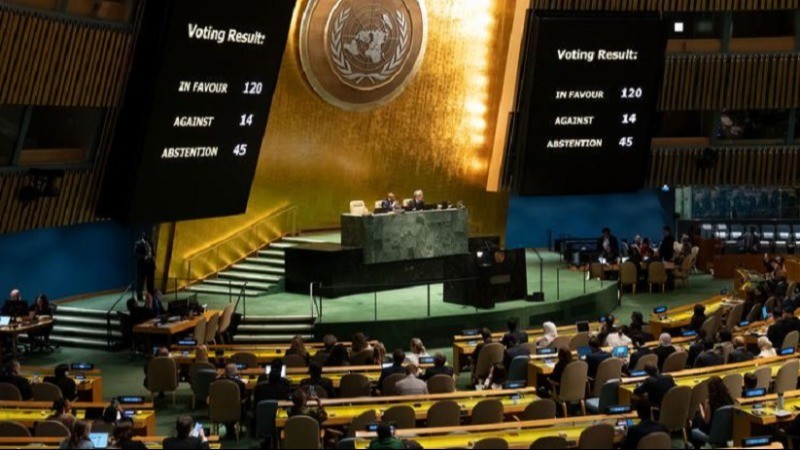
In a recent session of the UN General Assembly, India once again chose to abstain from voting on a resolution that calls for Israel to end its presence in the Occupied Palestinian Territory within the next year. The resolution, which garnered support from 124 countries, faced opposition from 14 nations, while 43, including India, chose to abstain.
The resolution also demands that Israel comply with international legal obligations as outlined by the International Court of Justice. Other countries abstaining from the vote included Australia, Canada, Germany, Italy, Nepal, Ukraine, and the United Kingdom.
India’s Position on the Resolution
India’s abstention reflects its cautious approach to the Israel-Palestine conflict. During the vote, India emphasized its commitment to dialogue and diplomacy, with a focus on bridging divides rather than exacerbating them. India's Permanent Representative to the UN, Ambassador Parvathaneni Harish, explained, “India has abstained from today’s vote. We have been strong advocates of dialogue and diplomacy. We believe that there is no other way to resolve conflicts.”
Harish reiterated that a lasting peace could only be achieved through direct negotiations between the two sides, supporting a two-state solution. He condemned the terrorist attacks on Israel that occurred on October 7, 2023, and called for an immediate ceasefire and the release of hostages.
Calls for Peace
India has consistently advocated for a two-state solution as the only viable resolution to the ongoing conflict. External Affairs Minister S. Jaishankar has repeatedly emphasized the need to address Palestinian concerns seriously and condemned terrorism while affirming the right of Palestinians to their homeland.
Jaishankar's remarks highlight India’s ongoing support for a peaceful resolution through negotiation, rather than actions that may deepen existing divisions.
Hezbollah vs. Israel: A Closer Look at the Rising Tensions and What’s Next
Iran’s Fiery Response: What Led to the Deadly Pager Explosions in Lebanon?